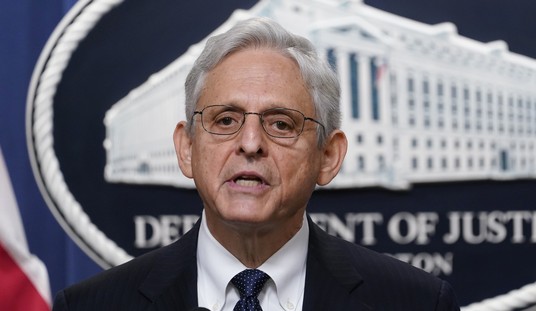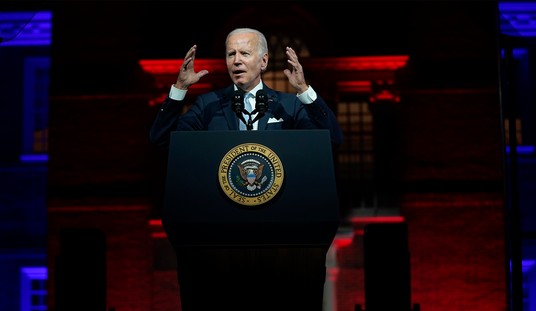These Counties Experiencing Election Issues Have One Thing In Common
It suffices to say that Election Day didn't go as planned for some polling places that experienced and are still experiencing ballot-counting issues. Despite the varying election-related difficulties, multiple jurisdictions share one foreseen commonality. There's a common thread connecting five counties spread across several states that were in disarray on Election Day: federal "monitors."
On the eve of the elections, the Biden administration's Department of Justice announced Monday it would be dispatching such monitors to as many as 64 jurisdictions in almost half of U.S. states on Election Day to oversee federal election law "compliance."
According to the DOJ's watch list, Pennsylvania's Luzerne County, Texas's Harris County, Arizona's Maricopa County, and Pima County, and Nevada's Washoe County all had the feds there "monitoring" polls. The nationwide deployment is a notable expansion. Nevada wasn't on the DOJ's roster two years ago during the presidential election cycle in 2020. Still, it was on the DOJ's radar this time, and Pima County—Arizona's second-most populous, which holds Tucscon—is among the new additions.
These five jurisdictions supposedly under in-person DOJ supervision throughout Tuesday suffered major muck-ups.
Luzerne County, the most populous county in northeastern Pennsylvania, had a serious supply shortage of the paper used in voting machines to tabulate ballots. It was an egregious Election Day depletion that stopped voting in dozens of the county's polling places, causing voters to be "turned away" and long lines for the patient Pennsylvanians who grinned and bared it. A court later issued an order allowing Luzerne County polls to remain open for two additional hours past closing time. The judge ordering the extension wrote: "Voters, through no fault of their own, were disenfranchised and denied the fundamental right to vote."
Recommended
Voting sites across Harris County, the Lone Star State's largest county encompassing Houston, opened late on Election Day, prompting groups to file suit for an extra hour of voting, granted by a district court judge. After the court order was challenged by Texas Attorney General Ken Paxton, a Republican seeking re-election and winning, the Texas Supreme Court ruled that ballots cast at any of the county's 781 polls in the final hour should be placed aside for the time being.
Texans who arrived to vote after the normal closing time at 7 p.m. but were in line by 8 p.m. had to cast provisional ballots. According to the state's high court ruling, the provisional votes were to be kept separate from the overall tally. At the same time, the legal process played out, Houston Public Media reported, "sealed" away in an "envelope" instead of being inserted into the scanning machine and then tabulated at the "Central Count station" located inside of the massive Houston-based NRG Arena.
Mayhem erupted in Arizona's key Maricopa County, the country's second-largest voting jurisdiction, where ballots were being "misread" at a number of precincts. At one point in the day, tabulators in 20% of the county's polling locations weren't working properly, according to a video statement by Maricopa County election officials. Not-yet-tabulated ballots were to be kept in a "secure box" for tabulation in the evening at "Central Count," the county's Board of Supervisors chairman Bill Gates instructed.
After multiple printers were not producing dark-enough timing marks on ballots, the elections department that afternoon announced they'd identified a simple solution for the equipment malfunctioning at 60 voting centers: changing the printer settings.
Farther south in Pima County, election staff cited "a technology issue" that temporarily caused one voting center to be down temporarily.
GOP lawyer Harmeet Dhillon pointed out that Pima County Recorder Gabriella Cázares-Kelly, who has "she/her" pronouns and "dismantling white supremacy" in her Twitter bio, is "even more political and less cooperative than Maricopa." Both counties are "slow-walking results, hoping to outlast our legal and other observers," Dhillon tweeted Thursday. "Ain't gonna happen!"
Florida's State Department invoked its authority under section 101.58(2) of the Florida Statutes to send its monitors to the jurisdictions "targeted" by Biden's DOJ to monitor the federal monitors and ensure there is "no interference with the voting process." After the 2022 midterm elections, the DeSantis administration declared that the letter was "successful," the DOJ obeyed Florida's declaration, and no federal personnel violated state law prohibiting entry, Florida's Voice reported Thursday morning.



No comments:
Post a Comment